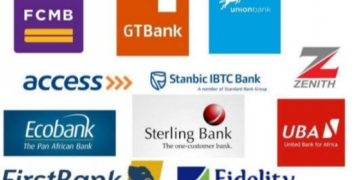Through years of evolution and paradigm shifts, Nigeria’s real estate industry has been driven by the constant search for solutions to human problems. The use of technology has proven to be a key way for humans to find solutions to many problems, serving as a panacea in many cases.
As civilization progressed and new scientific and technological trends emerged, real estate professionals and their clients increasingly sought ways to conduct business with greater efficiency and effectiveness, removing the barriers that had previously hindered them.
The emergence of property technology firms, or proptechs, began as a response to the need for more effective and efficient solutions in the real estate industry. While experts suggest that proptechs had already appeared in the US by the early 1980s, the term “proptech” was not yet in use. It wasn’t until 2018 that the first proptech firm is believed to have emerged in Nigeria.
The emergence of proptechs is a subject of debate among analysts, with some suggesting that it occurred during the late 1990s dot-com boom. However, today, proptechs are present in 64 countries, with the number of innovation-driven property technology companies estimated to be at 8,000, according to PropTech Global Trends 2020.
Proptechs are real estate outfits that utilize technology and software to address the challenges of modern property markets. Specifically, in the office sector, this might involve providing digital solutions for unique workplace experiences, leveraging advanced data and analytics for real-time feedback, or helping property teams navigate the asset lifecycle from purchase to management to sale.
The majority of property technology companies globally are located in the US, with a market share of 59.7 percent. Continental Europe follows with 27.2 percent, and within Europe, the UK has the largest proptech market outside of the USA. In the Asian proptech real estate industry, China dominates with a market share of 3.5 percent.
Historically, companies falling under this classification offer various services such as platforms for property searches (listing and marketplaces, tools for real estate agents, etc.), tools for property sales, financing tools (including digital lenders and brokers, alternative financing, etc.), software for mortgage lenders (including loan application and management), tools for real estate closings (including insurance and transaction management tools), tools for property management (including those powered by IoTtechnology), and systems for managing loans (including loan securitization, etc.).
As per Ascendix, a research group specializing in real estate, proptech refers to all the technological tools utilized by real estate professionals to enhance the process of buying, selling, researching, marketing, and managing properties. These advanced technologies are often referred to as real estate tech, retech, or realtech, and they signify the strong convergence between the real estate industry and technology.
The overarching objective is to create a distinctive, simplified, and more efficient experience around property ownership, leasing, or working in buildings.
This also implies that proptech isn’t limited to property owners and managers, but it also benefits the tenants who lease and work within the buildings. For example, having a building app is becoming increasingly necessary for office employees, enabling them to perform various tasks such as mobile key card access, ordering food, and visitor registration all in one place. Rather than requiring multiple apps to streamline their lives, the objective is to integrate everything into a single, centralized building app on tenants’ smartphones. This results in a customer-facing “remote control” for buildings.
One of the primary aspects that analysts have identified as the unique feature of proptech is the improved analytics it offers. Real estate experts can create more comprehensive insights into properties’ future risks and opportunities based on variables such as location and other factors. Proptech’s Big Data Analytics allows for an unparalleled level of detail in research that may have been previously unavailable.
Additionally, there is a component of accurate property evaluations. Proptech startups are already capable of predicting property prices x number of years into the future based on extensive datasets. For example, a comparable method that incorporates a vast array of non-traditional and traditional data was employed to anticipate the 3-year rent per square foot for Seattle multifamily buildings. According to McKinsey, the accuracy of the forecast exceeded 90%.
Proptechs also offer enhanced home prospecting, marketing, and sales capabilities. Proptech’s Big Data can also enhance property marketing efforts. Proptech realtors can leverage big data analytics tools to refine their audience, target buyers more effectively, and develop better offers.
Proptechs are also driving data-informed property development. The use of big data in residential development is yet another example of how technology has revolutionized the real estate sector. Precise data analysis assists technology-oriented real estate developers in forecasting the most suitable location to construct a new building and determining what amenities would be ideal for potential residents.
Additionally, proptech Big Data can serve as the primary basis for generating comprehensive predictive analyses of the potential risks associated with investing in particular buildings and projects.
Moreover, leveraging big data analysis, proptech realtors and other industry professionals can ensure that all the data are structured in clear and concise data sets, leaving no room for information to slip through the cracks. Furthermore, property technology startups can now eliminate the time and costs associated with manual effort.
The digital technology revolution has not bypassed the real estate industry in Nigeria, with several proptech startups now providing technology-driven solutions to their customers. These companies offer online property marketplaces and real estate data analytics, among other services, and are transforming the real estate industry. Their innovative solutions are opening up a world of possibilities for the future.
Some of the well-known proptechs operating in Nigeria include: Muster.Africa, PropertyPro, Estate Intel, Coreum, Hutbay, Rent Small Small, Property Deal Zone, and Fibre.
Proptechs have gained popularity due to their ability to establish a virtual platform that enables real estate professionals and their clients to carry out transactions without the hindrances that previously caused delays and inefficiencies.
The advent of proptechs has made the job of landlords, hosts and renters significantly easier by providing virtual platforms that allow real estate professionals and their clients to conduct transactions without the hindrances that previously made such transactions cumbersome and slow. Prior to this, communicating certain things with clients was challenging, and he had to do most things manually. Sometimes property renters always had to be physically present to attend to clients who wanted inspections. However, with the emergence of proptechs, most inspections can now be conducted remotely, except on special occasions.
Proptech platforms are also highly beneficial to clients. In Lagos, real estate agents typically charge inspection fees for every physical inspection. However, with the proptechplatforms, clients can simply access the available offerings online and determine if it meets their needs before deciding on a physical inspection. This has saved them time and money.
The proptech subsector has been a game changer for the real estate industry which has enabled practitioners offer services that were previously unavailable. They provide unique options for individuals to rent out their own homes for short-term stays, resulting in substantial earnings.
Proptech companies in Nigeria have also introduced plans that enables clients pay for short-term apartment rentals on a monthly basis. This option is ideal for individuals who plan to stay for a brief period or lack the financial resources to cover an entire year’s rent. By simply accessing the proptech’sonline platform and contacting them, they are able to negotiate a payment plan that is suited to their needs.
Proptech services have truly impacted the real estate sector. Various features, particularly the chatbot communication option, facilitates easier and more convenient access to services. These functionalities have effectively eliminated the obstacles that previously impeded people’s ability to access these services.
Kelechi Anyikude is the Growth Marketing Manager at Muster
Connect with Kelechi about tech marketing and opportunities in scaling startups on Twitter(@kelechiafc) and LinkedIn (Kelechi Anyikude)




